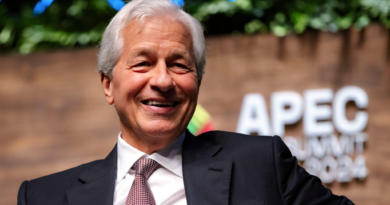Wegovy-maker Novo Nordisk could make prices flexible—without cutting them—to convince more health systems to cover the weight-loss drugs
Novo Nordisk’s sales have skyrocketed with the popularity of its weight-loss and obesity drugs. The Danish drugmaker’s sales in those two categories were up 36% in the nine months of 2023, to $22 billion.
But as demand has outstripped supply, with millions of possible patients yet to be served, the Danish pharma giant is considering creative ways to address the market.
Novo’s CEO Lars Fruergaard Jørgensen said the company might offer flexible pricing on Wegovy, the weight-loss drug, to cater to the sprawling market for obesity medication, the Financial Times reported Monday.
“We are open to what types of arrangements we can make with healthcare systems that could help them serve the patients who need it the most,” Jørgensen told the outlet.
The reason, he suggested, was so healthcare providers can adopt weight-loss drugs without the initial barrier of costs, making it more accessible to patients. Drugs like Wegovy have been shown to cut the risk of major cardiac events like strokes and heart attacks by 20% in recent studies, which in turn could reduce the costs faced by healthcare providers in the future.
“How can healthcare systems justify making a large one-time payment upfront that leads to significant savings down the road? I think we need to share that risk to get going,” Jørgensen said.
A flexible pricing model could help spread costs over time without cutting them, which in turn could encourage governments and private insurers to cover the medications. Wegovy is priced at over $1,300 a month in the U.S. and £199-299 for a month’s supply in the U.K. At present, a number of major private medical insurance policies don’t cover the cost of Wegovy, leaving patients to pay out of their own pockets for it. The drug, which has been hailed a “game-changer” for its treatment of obesity and its related risks, is currently available in Norway, Denmark and Germany as well.
“Novo Nordisk is continuously evaluating options with healthcare systems to make our products more accessible to a broader population, especially to those with a high unmet medical need,” a spokesperson for Novo told Fortune, declining to offer specific details.
Competition and demand in weight-loss drugs
As the prescriptions for weight-loss drugs grow, companies like Novo and its American rival Eli Lilly are in a heated competition in a market that’s estimated to be worth $100 billion by 2030.
Lilly’s diabetes drug Mounjaro, which suppresses appetite and is used off-label to lose weight, has seen soaring demand. It’s driven the pharma company’s profits to $9.5 billion in the third quarter, up 37% from the same time a year ago. The U.S. Food and Drug Administration also approved Lilly’s Zepbound, a direct competitor to Wegovy, earlier this month.
“In light of increasing rates of both obesity and overweight in the United States, today’s approval addresses an unmet medical need,” the U.S. FDA said in a statement at the time.
In the U.S., roughly 42% of the population suffers from obesity, while in the U.K. 26% of adults fall in that category. Indeed, elevated obesity rates mean that drugs to address the disease will remain highly sought-after. The competition could, in theory, also drive prices down, making it more affordable for patients across the board. Meanwhile, the insatiable demand for the likes of Wegovy, Ozempic and Mounjaro could boost drugmakers’ sales to new peaks.
Editor’s Note: This article has been updated with a comment from Novo Nordisk.




